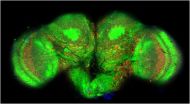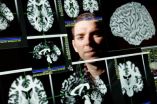(Press-News.org) [EMBARGOED UNTIL THURSDAY, FEB. 27] A simple change in how the hospital laboratory reports test results may help improve antibiotic prescribing practices and patient safety, according to a pilot, proof-of-concept study published in Clinical Infectious Diseases and now available online. No longer routinely reporting positive urine culture results for inpatients at low risk for urinary tract infections (UTIs) greatly reduced unnecessary antibiotic prescriptions and did not affect the treatment of patients who did need antibiotics, the study authors found.
Urine cultures for hospitalized patients are often ordered unnecessarily. Positive culture results from patients without any UTI symptoms can lead to antibiotic prescriptions that are of no benefit and may cause harm to patients, including C. difficile infection and subsequent infection with more antibiotic-resistant bacteria.
In the study, conducted in 2013 at Mount Sinai Hospital in Toronto, urine culture results from non-catheterized inpatients—those at lower risk for developing a UTI—were no longer reported automatically to the ordering physician. Instead, a message was posted to the patient's electronic medical record asking caregivers to call the lab for the results only if a UTI was strongly suspected.
The message reminded providers that "the majority of positive urine cultures from inpatients without an indwelling urinary catheter represent asymptomatic bacteriuria," a condition for which current practice guidelines do not usually recommend antibiotics, unless the patient is pregnant or will be undergoing certain urological procedures.
After the change in how the culture results were reported, the rate of antibiotic treatment for asymptomatic bacteriuria among non-catheterized patients decreased from 48 percent to 12 percent. Treatment rates among patients in the catheterized control group—whose culture results were routinely reported as before—remained steady, at 41 percent. Patients with positive culture results were assessed by a study investigator for UTI symptoms within 24 hours. Four UTIs developed among the non-catheterized patients; in all of these cases, clinicians had already started appropriate antibiotic treatment when the urine cultures were ordered, based on the patients' symptoms.
"In clinical medicine, there are many examples of tests that are not routinely processed or reported when they have been shown to be of very low yield or associated with potential harms, and special requests are required in these cases," said lead study author Jerome A. Leis, MD, MSc, of Sunnybrook Health Sciences Centre in Toronto. "We believe this to be true of some urine cultures from medical and surgical floors where we know that the majority of positive results occur in patients without symptoms of urinary tract infection and lead to unnecessary and potentially harmful therapy with antibiotics."
The study authors stressed the need for larger studies to confirm the overall generalizability, safety, and sustainability of such a change in urine culture reporting before it is implemented more broadly and in other practice settings.
INFORMATION:
Fast Facts:
1) Positive urine culture results for hospitalized patients at low risk for developing a urinary tract infection (UTI) can lead clinicians to prescribe unnecessary and sometimes harmful antibiotic therapy. Most positive urine cultures from inpatients who do not have a urinary catheter represent asymptomatic infections that do not require antibiotics.
2) In a pilot, proof-of-concept study, no longer routinely reporting positive urine culture results for inpatients at low risk for UTIs greatly reduced unnecessary antibiotic prescriptions and did not affect the treatment of patients who did need antibiotics.
3) Larger studies are needed to confirm the generalizability, safety, and sustainability of such an approach before it is implemented more broadly and in other practice settings.
Simple lab-based change may help reduce unnecessary antibiotic therapy, improve care
Modifying how urine culture results are reported to clinicians can improve prescribing practices, pilot study suggests
2014-02-27
ELSE PRESS RELEASES FROM THIS DATE:
One in 5 US hospitals don't put hand sanitizer everywhere needed to prevent infections
2014-02-27
(NEW YORK, NY, February 27, 2014) – Approximately one in five U.S. health facilities don't make alcohol-based hand sanitizer available at every point of care, missing a critical opportunity to prevent health care-associated infections, according to new research from Columbia University School of Nursing and the World Health Organization (WHO) published in the American Journal of Infection Control. The study, which examined compliance with WHO hand hygiene guidelines in the U.S., also found that only about half of the hospitals, ambulatory care, and long-term care facilities ...
Scientists wake up to causes of sleep disruption in Alzheimer's disease
2014-02-27
Being awake at night and dozing during the day can be a distressing early symptom of Alzheimer's disease, but how the disease disrupts our biological clocks to cause these symptoms has remained elusive.
Now, scientists from Cambridge have discovered that in fruit flies with Alzheimer's the biological clock is still ticking but has become uncoupled from the sleep-wake cycle it usually regulates. The findings – published in Disease Models & Mechanisms – could help develop more effective ways to improve sleep patterns in people with the disease.
People with Alzheimer's ...
Over 80s often over-treated for stroke prevention
2014-02-27
People in their 80s are often prescribed drugs to ward off a stroke when the risk of a stroke is not that high and the drugs have other side effects, finds a perspective published online in Evidence Based Medicine.
People in this age group are being "over-treated," and doctors need to actively rethink their priorities and beliefs about stroke prevention, argues Dr Kit Byatt of the Department of Geriatric Medicine, The County Hospital in Hereford, UK.
Statins and antihypertensive drugs were the most commonly prescribed cardiovascular drugs in the UK in 2006. And they ...
Mental health of most UK troops serving in Afghanistan and Iraq is 'resilient'
2014-02-27
Despite prolonged combat missions to Iraq and Afghanistan, there has been no overall increase in mental health problems among UK soldiers, finds a review of the available evidence, published online in the Journal of the Royal Army Medical Corps.
But certain groups of soldiers do seem to be more vulnerable to mental ill health on their return home, while alcohol problems continue to give cause for concern among regulars, say the researchers from King's College London.
They retrieved published research looking at the psychological impact of deployment to Iraq and Afghanistan ...
Passive smoking linked to increased miscarriage, stillbirth, and ectopic pregnancy risk
2014-02-27
Passive smoking is linked to a significantly increased risk of miscarriage, stillbirth and ectopic pregnancy, finds a large observational study, published online in Tobacco Control.
The risk appears to be cumulative, with risk heightened in parallel with the length of time exposed to second hand smoke, the findings indicate.
It is well known that smoking during pregnancy significantly increases the risks of miscarriage and birth complications. What is less clear is whether passive smoking exerts similar effects, and if there are particularly critical periods of exposure ...
Spotted seal study reveals sensitive hearing in air and water
2014-02-27
Two spotted seals orphaned as pups in the Arctic are now thriving at UC Santa Cruz's Long Marine Laboratory, giving scientists a rare opportunity to learn about how these seals perceive their environment. In a comprehensive study of the hearing abilities of spotted seals, UCSC researchers found that the seals have remarkably sensitive hearing in both air and water.
The findings, published February 26 in the Journal of Experimental Biology, are important for understanding how spotted seals might be affected by noise from human activities in the rapidly changing Arctic ...
Secondhand smoke exposure linked to adverse pregnancy outcomes
2014-02-27
BUFFALO, N.Y. — Secondhand smoking is linked with pregnancy loss, including miscarriage, stillbirth and tubal ectopic pregnancy, according to new research from scientists at Roswell Park Cancer Institute (RPCI) and the University at Buffalo (UB). The study findings, published online by the journal Tobacco Control, mark a significant step toward clarifying the risks of secondhand smoke exposure.
"This study demonstrated that pregnancy outcomes can be correlated with secondhand smoking. Significantly, women who have never smoked but were exposed to secondhand smoke were ...
Febrile illnesses in children most often due to viral infections
2014-02-27
This news release is available in German. Most children ill with fever in Tanzania suffer from a viral infection, a new study published in the New England Journal of Medicine shows. A research team led by Dr. Valérie D'Acremont from the Swiss Tropical and Public Health Institute in Basel and the Policlinique Médicale Universitaire in Lausanne systematically assessed the causes of febrile illnesses in Tanzanian children. According to the results, in most cases a treatment with antimalarials or antibiotics is not required. The finding has the potential to improve the ...
Breast cancer cells less likely to spread when one gene is turned off
2014-02-27
COLUMBUS, Ohio – New research suggests that a protein only recently linked to cancer has a significant effect on the risk that breast cancer will spread, and that lowering the protein's level in cell cultures and mice reduces chances for the disease to extend beyond the initial tumor.
The team of medical and engineering researchers at The Ohio State University previously determined that modifying a single gene to reduce this protein's level in breast cancer cells lowered the cells' ability to migrate away from the tumor site.
In a new study published in the journal ...
One gene influences recovery from traumatic brain injury
2014-02-27
CHAMPAIGN, Ill. — Researchers report that one change in the sequence of the BDNF gene causes some people to be more impaired by traumatic brain injury (TBI) than others with comparable wounds.
The study, described in the journal PLOS ONE, measured general intelligence in a group of 156 Vietnam War veterans who suffered penetrating head wounds during the war. All of the study subjects had damage to the prefrontal cortex, a brain region behind the forehead that is important to cognitive tasks such as planning, problem-solving, self-restraint and complex thought.
The ...
LAST 30 PRESS RELEASES:
Why conversation is more like a dance than an exchange of words
With Evo 2, AI can model and design the genetic code for all domains of life
Discovery of why only some early tumors survive could help catch and treat cancer at very earliest stages
Study reveals how gut bacteria and diet can reprogram fat to burn more energy
Mayo Clinic researchers link Parkinson's-related protein to faster Alzheimer's progression in women
Trends in metabolic and bariatric surgery use during the GLP-1 receptor agonist era
Loneliness, anxiety symptoms, depressive symptoms, and suicidal ideation in the all of us dataset
A decision-support system to personalize antidepressant treatment in major depressive disorder
Thunderstorms don’t just appear out of thin air - scientists' key finding to improve forecasting
Automated CT scan analysis could fast-track clinical assessments
New UNC Charlotte study reveals how just three molecules can launch gene-silencing condensates, organizing the epigenome and controlling stem cell differentiation
Oldest known bony fish fossils uncover early vertebrate evolution
High‑performance all‑solid‑state magnesium-air rechargeable battery enabled by metal-free nanoporous graphene
Improving data science education using interest‑matched examples and hands‑on data exercises
Sparkling water helps keep minds sharp during long esports sessions
Drone LiDAR surveys of abandoned roads reveal long-term debris supply driving debris-flow hazards
UGA Bioinformatics doctoral student selected for AIBS and SURA public policy fellowship
Gut microbiome connected with heart disease precursor
Nitrous oxide, a product of fertilizer use, may harm some soil bacteria
FAU lands $4.5M US Air Force T-1A Jayhawk flight simulator
SimTac: A physics-based simulator for vision-based tactile sensing with biomorphic structures
Preparing students to deal with ‘reality shock’ in the workplace
Researchers develop beating, 3D-printed heart model for surgical practice
Black soldier fly larvae show promise for safe organic waste removal
People with COPD commonly misuse medications
How periodontitis-linked bacteria accelerate osteoporosis-like bone loss through the gut
Understanding how cells take up and use isolated ‘powerhouses’ to restore energy function
Ten-point plan to deliver climate education unveiled by experts
Team led by UC San Diego researchers selected for prestigious global cancer prize
Study: Reported crop yield gains from breeding may be overstated
[Press-News.org] Simple lab-based change may help reduce unnecessary antibiotic therapy, improve careModifying how urine culture results are reported to clinicians can improve prescribing practices, pilot study suggests


